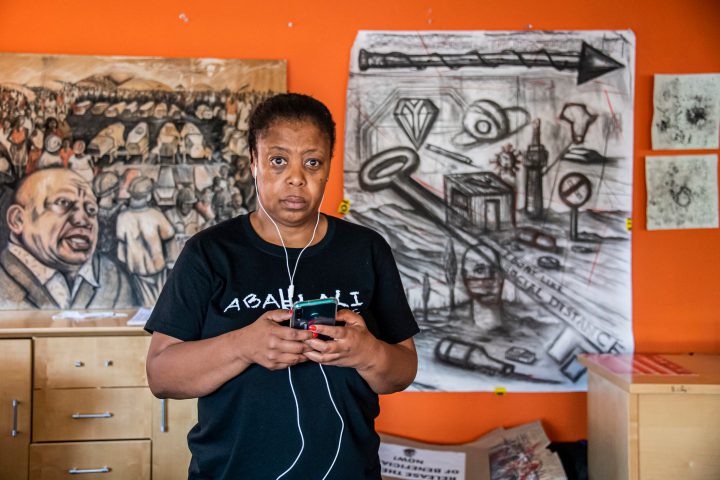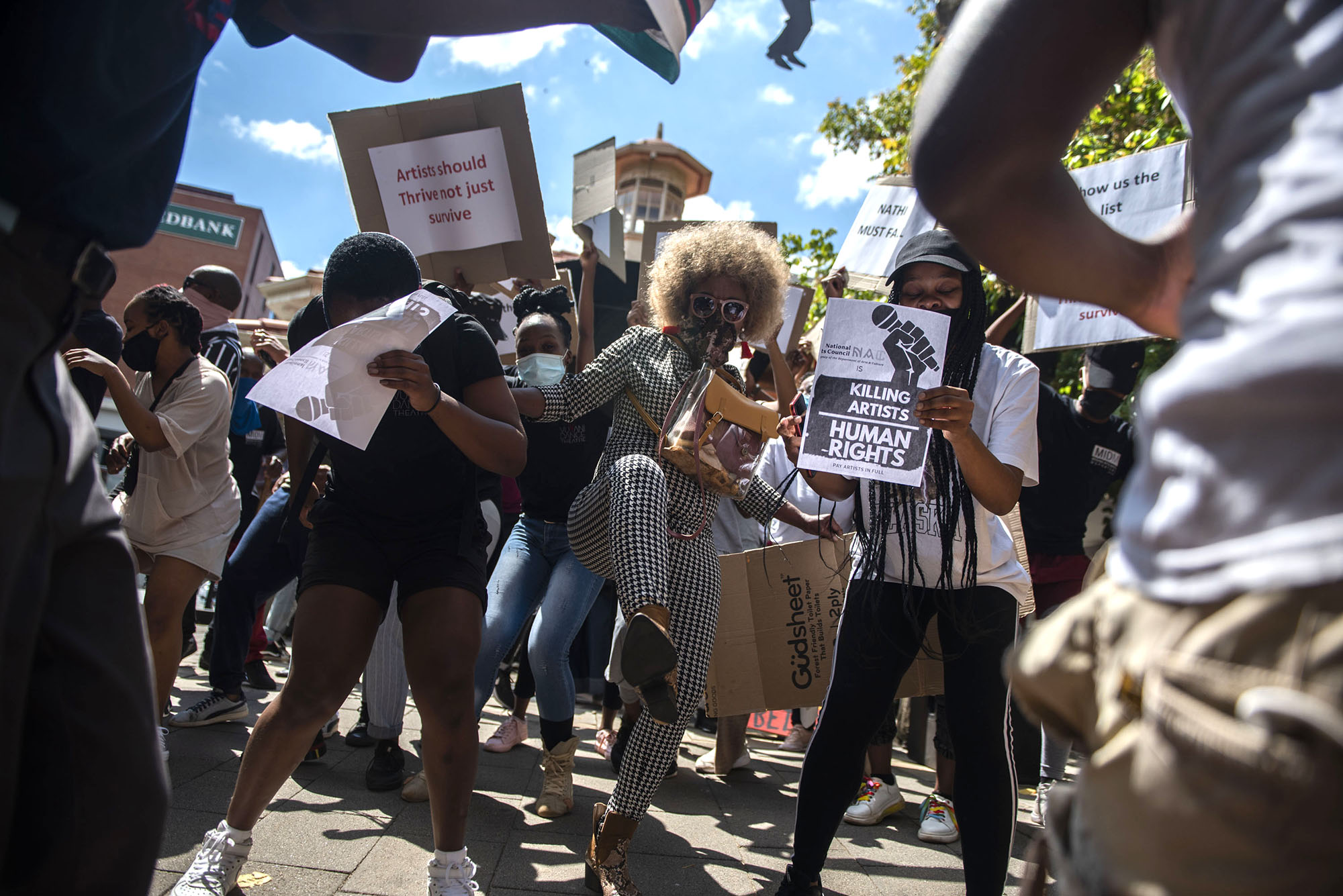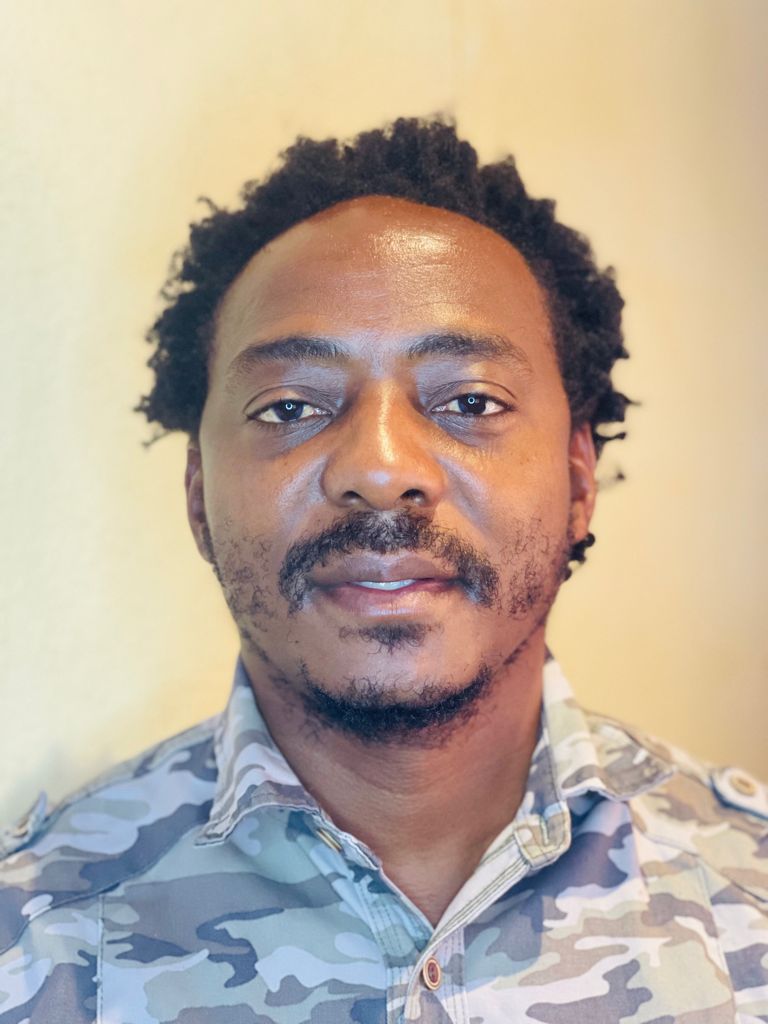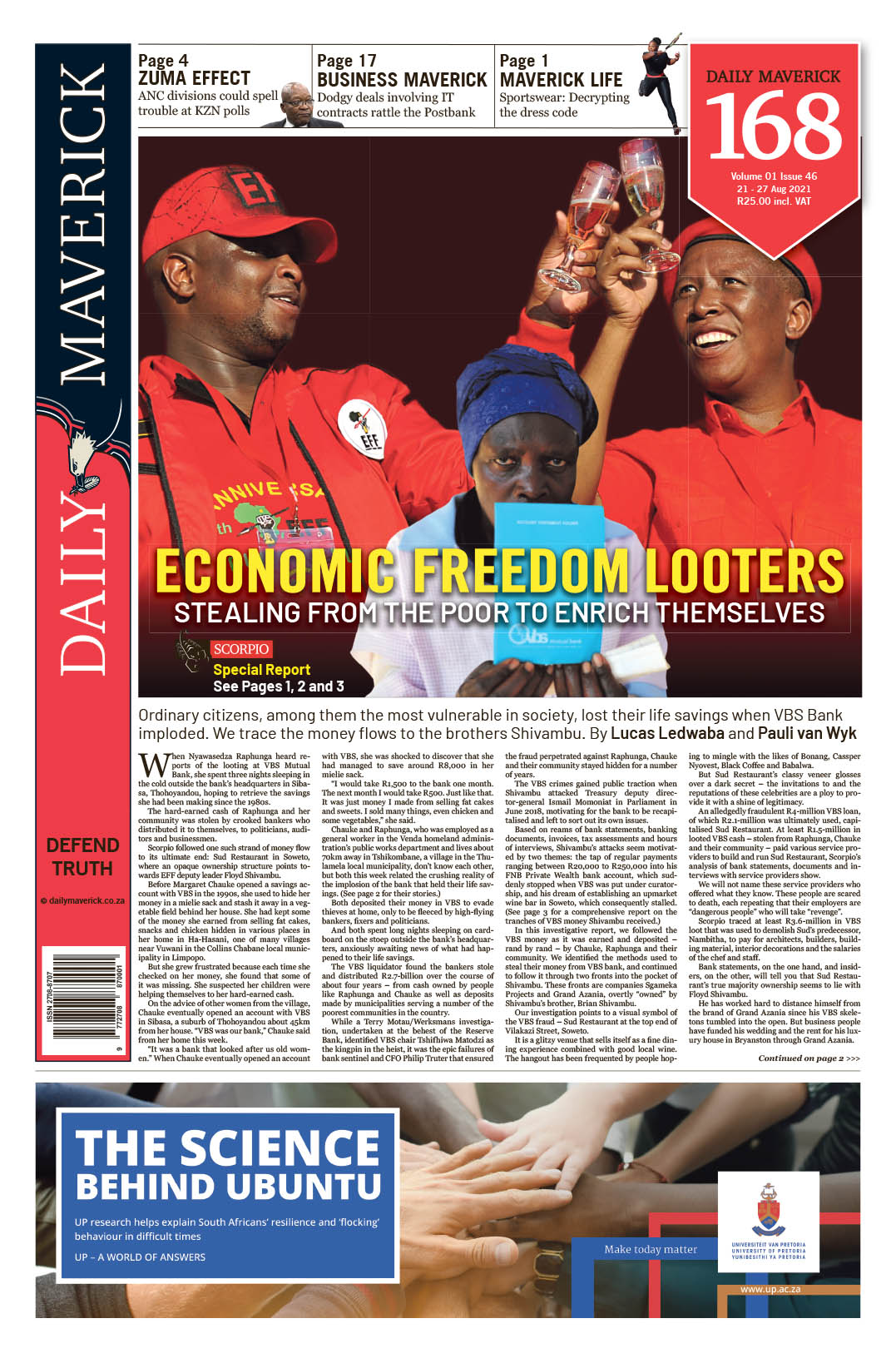DM168 ART BYPASS
South African artists paint a bleak picture for relief funding in the industry

The trials, tribulations, delays – and odd success – within the arts world.
First published in the Daily Maverick 168 weekly newspaper.
It’s been 10 months since the Presidential Employment Stimulus Package (Pesp) was announced for arts, but the creative sector is still struggling to get back on its feet.
Earlier this month, at a virtual media briefing, Minister of Sports, Arts and Culture Nathi Mthethwa said the narrative that the department was unresponsive and uncaring towards the sector was a “fairy tale”.

Minister of Arts, Sports and Culture, Nathi Mthethwa. (Photo by Gallo Images/Sharon Seretlo)
When relief funding was first announced, it was said that it wouldn’t be possible to support everyone in the creative sector, “because of limited resources, not because of refusal to support or lack of care”, added Mthethwa. He then boasted about the nearly R700-million spent on relief funding in the sector. To date, about R257-million has been disbursed to 1,309 beneficiaries through Pesp administered by the National Arts Council of South Africa (NAC).
Mthethwa then listed a number of beneficiaries, including PJ Powers, Sello Maake Ka-Ncube, the Baxter Theatre and the District Six Museum Foundation.
Mike van Graan, an award-winning playwright, challenged Mthethwa’s claims in a hard-hitting riposte that was published by Daily Maverick.

Playwright and cultural activist Mike van Graan. Photo: Leila Dougan/Daily Maverick
“Mthethwa lists examples of Pesp beneficiaries like the Baxter Theatre Centre. What he fails to mention is that while the Pesp funding may have helped retain jobs of Baxter Theatre employees, the Baxter has been unable to present work for months, thereby denying many creatives the opportunity to earn an income,” wrote Van Graan.
Besides the changes in how many people are allowed inside venues, which has affected the live-performance industry, the disbursement of the Pesp has aggravated the stress levels of creatives. The way that the NAC has handled the Pesp has been riddled with court cases, reneging on contracts, delayed payments and reduced funding.
During a Zoom meeting with the creative sector in late February, the NAC announced it would be reneging on about 600 contracts because there wouldn’t be enough money for the roughly 700 beneficiaries who had not yet signed their contracts.
To ensure that all beneficiaries would get a piece of the pie, the NAC reduced the amount beneficiaries would get. The guiding figure was adjusted from the maximum of R25,000 for organisations and R16,600 for individuals per job to R10,895 per job.
During that meeting, NAC council member Sipho Sithole, whose company Afrocentric Talent Agency got a Pesp grant, said: “We’ll have to reissue the grant [approval] letters, we know it’s not going to be nice. Some people will probably take us to court.”
In the past eight months, creatives have struggled to get their projects off the ground because of the NAC reducing its funding, late payments and, for some, no payments.
In March, a month-long sit-in was staged at the NAC’s Newtown offices led by opera singer Sibongile Mngoma. During meetings with the NAC, Mngoma said that she and the others protesting wouldn’t leave until all beneficiaries were paid.
“Our sit-in was, to some extent, successful because after the sit-in there was an increase in the number of artists who were paid, which is what we wanted,” said Thami aka Mbongo, an actor who was part of the sit-in.
‘Pesp was about hope and growth’
Originally, the National Arts Festival was set to receive R8-million for three projects. The NAC then later informed the arts festival that the total amount granted for the three projects would be reduced to R3.4-million.
After the NAC had made the announcement about reneging on contracts, the festival took it to court. On 31 March, the NAC was ordered to pay out R3.4-million within 72 hours. The NAC “promptly” paid the R3.4-million, despite telling the National Arts Festival that they’d be paid in January, said festival CEO Monica Newton.

Monica Newton, National Arts Festival CEO. Photo: Bizz Community
Although the festival took place virtually, Pesp only affected three projects that were approved for the stimulus package, which were:
- One supporting and funding 49 digital productions in all nine provinces;
- One aimed at establishing workshops for local artisans, crafters and artists to innovate, experiment and install street art projects; and
- Another where new exhibitions and works challenging the narrative of the 1820 Settlers National Monument in Makhanda would be showcased.
In June 2021, Judge Colin Lamont of the Gauteng High Court ruled in favour of the festival receiving the balance of the original R8-million that had been awarded.
In the ruling, Lamont said: “The conduct of the [NAC] in unilaterally reducing the contractual amount at a point at which the time for payment of the first amount of funding had passed, and a mere two weeks before the project completion date, is accordingly unlawful and irrational.”
Newton said: “As it stands the three projects are incomplete and we’re still in court with the NAC as they are appealing the judgment. Yes, Pesp was about money, but it was also about hope and growth and it hasn’t been that for a lot of us.”

Mercy Pakela performs in front of the National Arts Council in Newtown. (Photo: Alet Pretorius)

Musician Mercy Pakela protests at the National Arts Council offices in Newtown, Johannesburg. (Photo: Alet Pretorius)
Tribulations
The case studies below illustrate the trials, tribulations, delays – and odd success – within the arts world.
“The NAC paid me three weeks before the expected deadline,” said Lisa (whose identity is being protected for fear of retaliation). She is a film producer who applied for Pesp to “record a low-budget TV series” with the aim of pitching it to networks for development. Lisa was approved for about R160,000. After receiving her contract, she said that the NAC was slow in responding to her concerns about the contract. “I’d asked a few questions such as what happens if I don’t finish my project in time and it was a struggle to get those basic answers,” said Lisa.
The NAC only approved Lisa’s project in March, the month it had initially stated as the deadline when applicants were expected to complete their projects. For this reason the Theatre and Dance Alliance (Tada) released a report in June that found that the NAC had set beneficiaries up for failure with their “unrealistic timelines”.
Essentially, applicants were given “five months to apply, to plan, initiate and implement and report on their projects. With the closing date for Stream 2 – the creation of work opportunities – on 27 November 2020, it was likely that the earliest that projects would receive funding would be in January 2021 so that many – even if they were confirmed for funding in December – would need to take the risk and raise bridging finance to implement their projects to ensure that they would be completed by the deadline of 31 March 2021,” reads Tada’s report.
Because of how slow the NAC had been in disbursing the money, it pushed the deadline for applicants to complete their projects to May and then later to June.
Lisa’s initial deadline was set for the beginning of May. “When I wrote to them to express my concern, there wasn’t much concern from their side, so I decided to work on my own time frame because there was also no way I could’ve produced a film in six weeks,” said Lisa.
“By the time they paid me out in late April, I was left with three weeks to reach the deadline they’d set, which wasn’t going to be possible for me,” said Lisa. To date, she has received about R100,000.
Around late June, Lisa started filming, but President Cyril Ramaphosa announced adjusted Alert Level 2 regulations. “Because of that, we had to cancel our second day of shooting. I had to pay cancellation fees, which chewed into the budget.”
To get the second tranche of payment, Lisa needs to show the NAC that she has started the work. “This means I have to edit the work that I have, which requires me to pay an editor, but I need the [rest of the] money from the grant to do that,” said Lisa. She has decided to send the NAC the raw footage to show that she has started her project.
Decimating business

Jaco van Rensburg had to self-fund his shows in Free State after the NAC failed to pay him and later revoked his application. Photo: Supplied
Two days after the NAC announced it would renege on about 600 contracts, Jaco van Rensburg – who was yet to be paid – was to stage a two-day theatre production in the Free State. He had applied for funding for two projects through his company, VR Theatrical. On 28 January 2021, one application was approved and his contract stipulated that payment would be made no later than 18 February 2021.
By March, he had still not been paid for his theatre production, which was approved for R300,000.
In Tada’s report, Van Rensburg, who is also part of Tada, said: “The NAC subsequently changed the project status from ‘contracted’ to ‘declined’ when they unilaterally adjusted their ‘guiding figure’. This non-payment of a binding contract, issued by the NAC, has decimated our business and jeopardised our future existence.”
Shortly after Van Rensburg’s Free State shows, the NAC approved his second application, which was for a webinar series to upskill young theatre-makers. R100,000 was granted to Van Rensburg’s company for the webinar series.

Romeo Ramauda from Saacyf said that they were able to employ over 300 people with the money from the stimulus package. Photo: Supplied
The South African Arts and Culture Youth Forum applied for about R4-million to host a nationwide skills-development project for the arts sector. Romeo Ramauda from the youth forum said they received R1.8-million after the NAC adjusted the guiding figures.
“We were all understandably upset but we accepted it because we understood that the NAC wanted to spread the money to more individuals and organisations,” said Ramauda.
“With our project, we were able to employ over 300 people and put skills and money back into the industry. Getting the money wasn’t about making a profit, it really was about putting artists who’ve been out of work for more than a year back to work,” he said.
The project took place from March to May and “we’re happy with the work that we did”.
Tshepo Mashiane, the NAC’s spokesperson, did not respond to questions on Tada’s report or on the concerns raised by artists. DM168
This story first appeared in our weekly Daily Maverick 168 newspaper which is available for R25 at Pick n Pay, Exclusive Books and airport bookstores. For your nearest stockist, please click here.




















 Become an Insider
Become an Insider
Comments - Please login in order to comment.